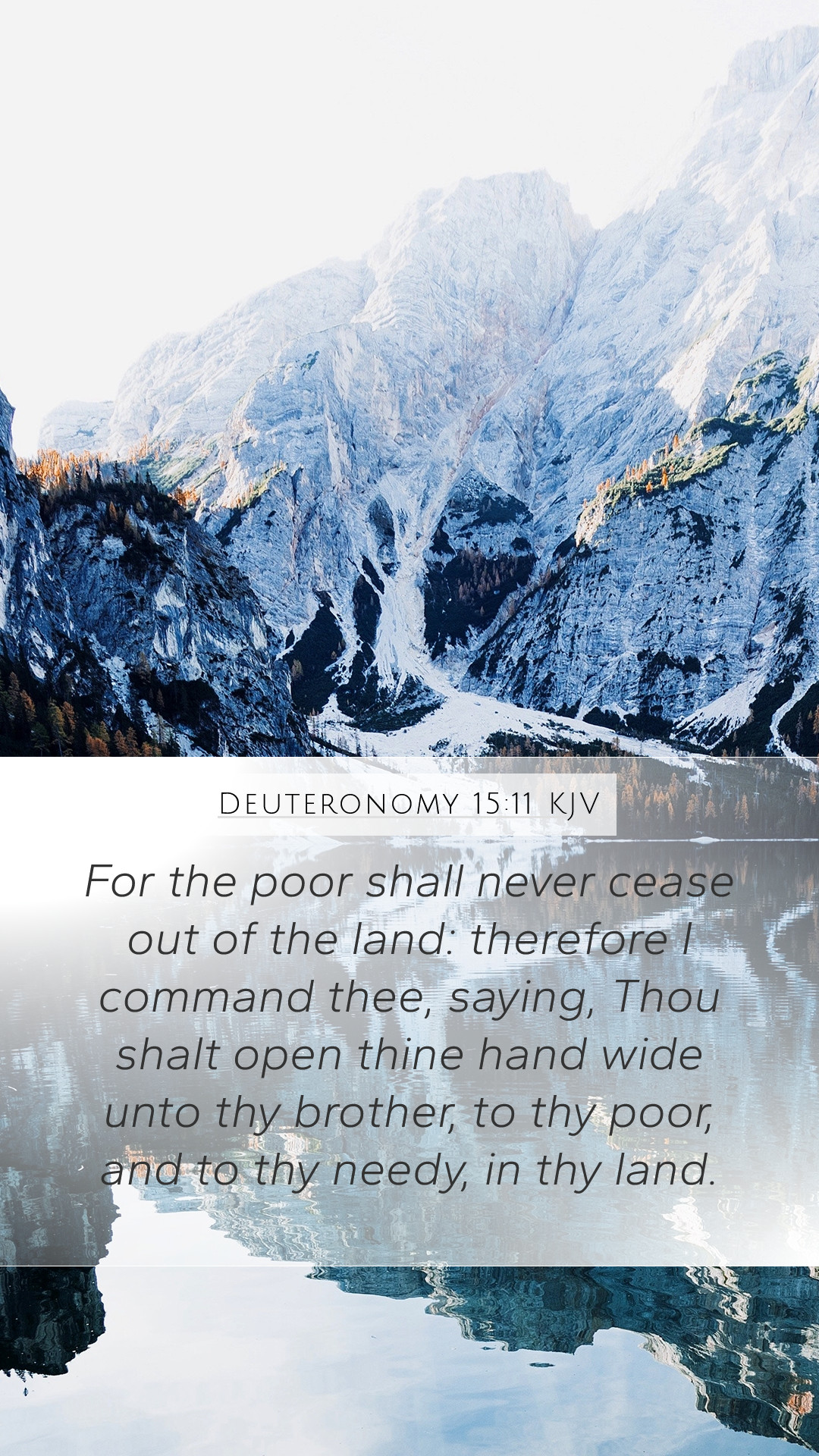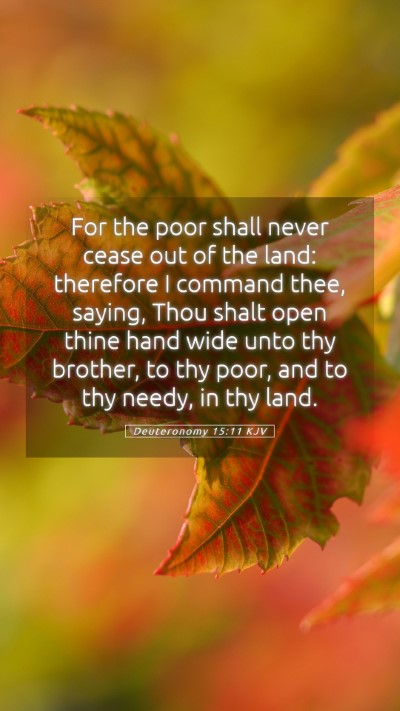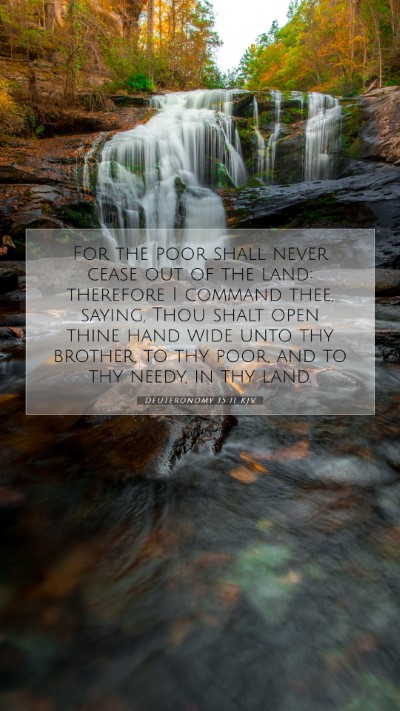Understanding Deuteronomy 15:11
Deuteronomy 15:11 states:
"For the poor will never cease out of the land: therefore I command thee, saying, Thou shalt open thine hand wide unto thy brother, to thy poor, and to thy needy, in thy land."
This verse addresses the continuous presence of poverty and outlines God's command for generosity and compassion towards those in need. Each element of this verse contributes to our understanding of biblical compassion, social justice, and responsibility.
Bible Verse Meanings from Public Domain Commentaries
Insights from Matthew Henry
Overall Interpretation: Matthew Henry emphasizes that this verse underscores the chronic nature of poverty within society. He explains that God, in His wisdom, has allowed the poor to exist among us to test our hearts and to practice kindness. Henry notes that the call to assist those in need is not just a suggestion but a divine command.
- Poverty's Presence: The reality that the poor will be present in every generation serves as a reminder of our duty to help.
- Divine Command: The command to open one’s hand wide signifies a readiness to give generously and cheerfully.
- Broader Application: This act of giving should extend to all needy individuals within one’s community and not just to those who are known personally.
Insights from Albert Barnes
On the Nature of Need: Albert Barnes reflects on the perpetual state of need among humanity. He argues that God’s provision is a test of our willingness to fulfill our obligations. Barnes emphasizes that the needy are our responsibility and we must respond with action.
- Continuity of Poverty: The statement about the poor not ceasing serves as a call to prepare for ongoing acts of charity.
- Act of Generosity: The instruction to open one’s hand reminds us that generosity should be proactive and abundant.
- Social Ethics: Helping the poor reflects not only compassion but also adherence to God’s law of love and social justice.
Insights from Adam Clarke
Contextual Understanding: Adam Clarke provides context by linking this verse to the broader theme of social responsibility present throughout Deuteronomy. He elaborates on the importance of recognizing the humanity of the poor and responding to their suffering with love.
- Theological Foundation: Clarke points out that God cares deeply for the poor and expects His followers to exemplify His compassion.
- Personal Responsibility: The verse implores each individual to assess their own capacity to assist and to act accordingly.
- Transformational Giving: Clarke suggests that such generosity not only helps the needy but also transforms the giver's spirit, fostering a deeper faith.
Application of the Verse in Daily Life
Understanding Deuteronomy 15:11 helps us recognize the significance of compassionate action in our daily lives. It encourages us to:
- Be Proactive in Charity: Acknowledge the needs in our communities and take actionable steps to assist those less fortunate.
- Cultivate Generosity: Practice open-handedness and find ways to bless others around us, creating a culture of giving.
- Advocate for the Poor: Support policies and initiatives that assist the impoverished in socioeconomic structures.
Associated Biblical Cross References
- Matthew 26:11 - Jesus acknowledges the perpetual presence of the poor.
- Proverbs 19:17 - Kind acts towards the poor are equated with lending to the Lord.
- 1 John 3:17 - The importance of taking action when one sees a brother in need.
- Luke 6:38 - The principle of giving and receiving in abundance.
Conclusion
Deuteronomy 15:11 serves as a profound reminder of our responsibility towards those in need. Through meticulous scriptural study and commentary analysis, we gain a richer understanding of how this verse calls us to live out our faith through acts of kindness and compassion. Engaging with this verse as part of a Bible study group or through online Bible study can enhance our collective insights and inspire actions that align with God’s heart for the poor and needy.


